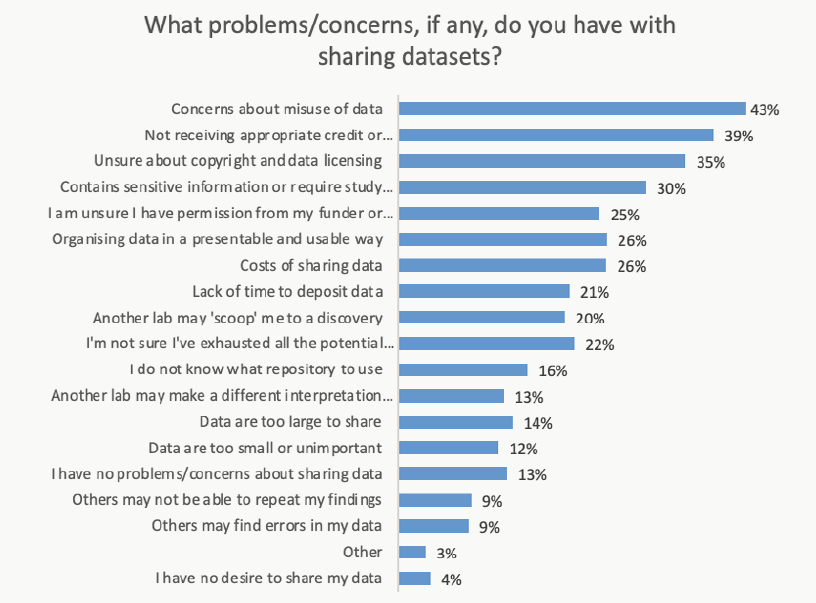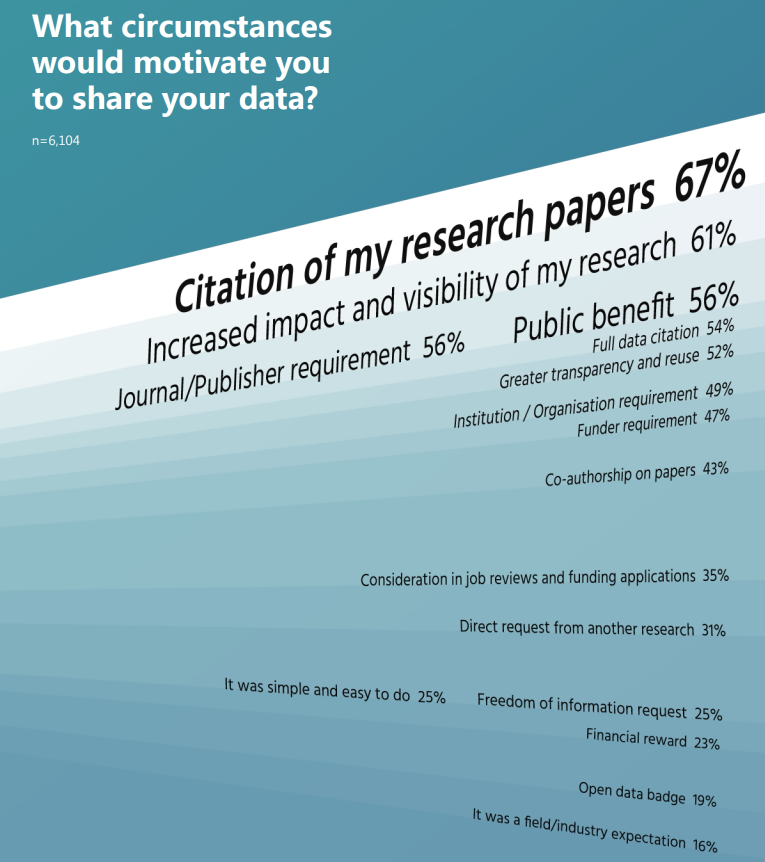Research Data Management and Publishing
Problems and obstacles
Problems
One of the problems facing Estonia today is the lack of a clear policy regarding open science and open data. Therefore, there is also the lack of institutional requirements and practices specifying the extent to which scientists have to contribute to open science, and what they will receive in return, as no obvious benefit to their career can be seen.
At the same time, researchers who work with international research groups are under strong pressure. Numerous other countries have already adopted policies concerning open science and universities of these countries are provided with relevant guides and instructions, which should, in such cases, be followed by Estonian researchers as well.
An Analysis of Open Data and Open Science Policies in Europe (update 6, August 2020) by SPARC Europe gives an overview of existing policies and guidelines regarding open science and open data.
As of August 2020, they count 14 national policies, of which 11 are those of EU member states (Cyprus, Czech Republic, Spain, Finland, France, Netherlands, Ireland, Slovenia and Slovakia). In the European Research Area, four non-EU members have national policies (Switzerland, Norway, Serbia and the UK).
Estonia is listed under member states with no national policy but which are active in this space.
Another large problem is, no doubt, the researchers’ lack of time and money. Data management does not receive separate financing and funds for these activities need to be drawn from research grants. However, it is sure that if data management has been written into the research project in its planning phase, it could help to save money and time in some other phases.
Very often researches have no data management skills and even the groups carrying out data-intensive research often do not include a data management specialist who could teach, supervise and be responsible for these matters.
Obstacles and barriers
As data sharing is a relatively new practice in most fields of research, it is only natural that the academic community should be somewhat prejudiced against it.
Researchers are most scared of the fact that somebody could benefit from their data even before they have managed to publish their planned articles. Actually, they are not required to publish their data before publishing the article. If they plan to use the data further, they can establish a reasonable embargo period. Or, they can publish an open access preprint which will be given a time stamp; this way, the owners of the data can ensure the priority of their article.
Data owners also fear the misuse or misinterpretation of their data, meaning that somebody may draw entirely different conclusions form their data. Researchers do not in principle oppose the idea of data sharing, but they prefer to do it when asked for it, so that they could add explanations and specifications. They might also think that their data set is too large or too complex for others to understand.
In such cases it is important that the data are well organised, documented and provided with metadata and the README.txt file.
There are still the problems of copyright, licences, and the protection of sensitive personal data. As the problems seem to be too complicated and would require the help of a lawyer, people prefer not to publish their data.

Science, Digital; Simons, Natasha; Goodey, Greg; Hardeman, Megan; Clare, Connie; Gonzales, Sara; et al. (2021): The State of Open Data 2021. Digital Science. Report. https://doi.org/10.6084/m9.figshare.17061347.v1
As a counterweight let’s look at a report published in October 2022: Science, Digital; Goodey, Gregory; Hahnel, Mark; Zhou, Yuanchun; Jiang, Lulu; Chandramouliswaran, Ishwar; et al. (2022): The State of Open Data 2022. Digital Science. Report. https://doi.org/10.6084/m9.figshare.21276984.v5
The survey answered an important question:

Additional reading:
Zuiderwijk A, Shinde R, Jeng W (2020) What drives and inhibits researchers to share and use open research data? A systematic literature review to analyze factors influencing open research data adoption. PLoS ONE 15(9): e0239283. https://doi.org/10.1371/journal.pone.0239283


